How Voice Technologies Are Shaping The Future Of Fashion Industry?
Night Mode
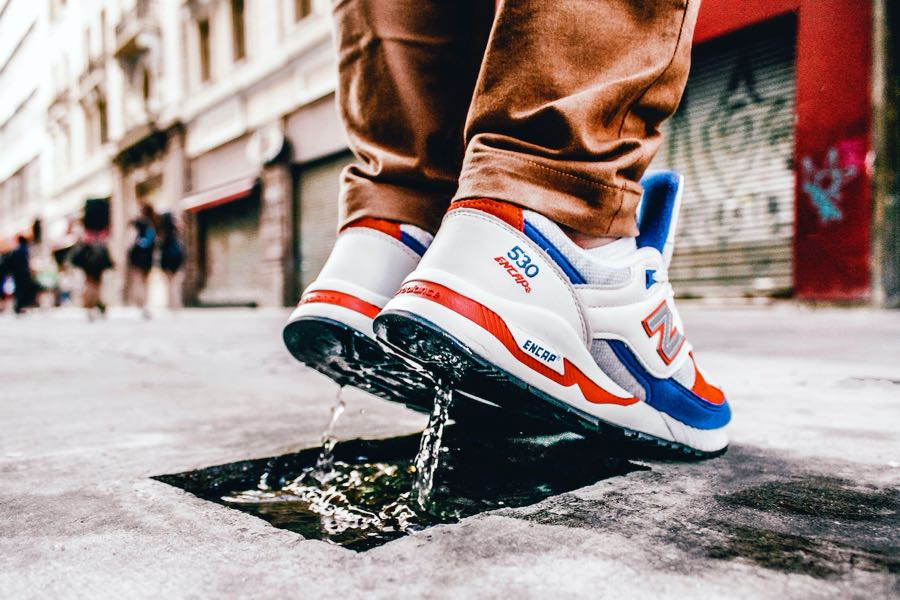
When I ask people to imagine what the world will be in 2030, I hear a variety of answers. From self-driving bus to space tourism. But when I think of the future, I get excited to imagine the future that integrates all sorts of industries with new technologies, such as Voice User Interfaces. Today we'll take a look at Fashion and Beauty.
As a marketing specialist in Upside, I constantly search for voice technology innovations that will impact the various sectors. Before writing this article, I did a research and checked what others marketers thought about implementing voice solutions inside Fashion and Beauty areas of business. Hadari Oshri a CEO of Xehar Technologies noticed that:
“The way I see it, the roots of what will be the future of fashion are already growing with artificial intelligence, machine learning and advances in blockchain and cryptocurrencies.”
According to his thought, the first question that came to my mind was “How voice technology will change retail through fashion?”
Voice-controlled Shopping
"Voice search for fashion technology means ability to look for specific products without touching computer or smartphone." said Kasia Gola from Geek Goes Chic blog.
In my mind, this feature it’s closely connected with new consumer’s point of view that focuse on smart and instant shopping during other activities like cooking, surfing the Internet or tapping the message. Moreover, there are statistics based on current and future predictions based on the growing popularity of smart speakers like Amazon Echo and Google Home.
Study from OC&C Strategy Consultants shows that voice-based shopping will grow to a whopping $40 billion-plus in 2022, up from $2 billion today across the US and the UK. Voice Technology has the ability to support brands and retailers with providing more personal experience for customers, which increases conversion, brand awareness, repeat purchase and loyalty.
What’s more, voice interfaces offer some unique values related to voice search:
- being available 24/7
- a conversational style
- personalized recommendations
- linking digital and physical reality
- brand identity on platform and off - platform
- personalized experiences
Innovation In Fashion & Beauty With Voice Technologies
Leading brands like ASOS, Nike, Estée Lauder or the Japanese retailer - Uniqlo already implemented voice-based interfaces for their clients. All of them started thinking about VUI as opportunity to be more competitive and comprehensive in the digital world.
ASOS
ASOS launched Enki, the shopping guide, with a voice command that is done through a Google Home smart speaker or Google Assistant app. The shopping service, in the UK and US, will allow customers to discover the latest Asos products using just their voice.
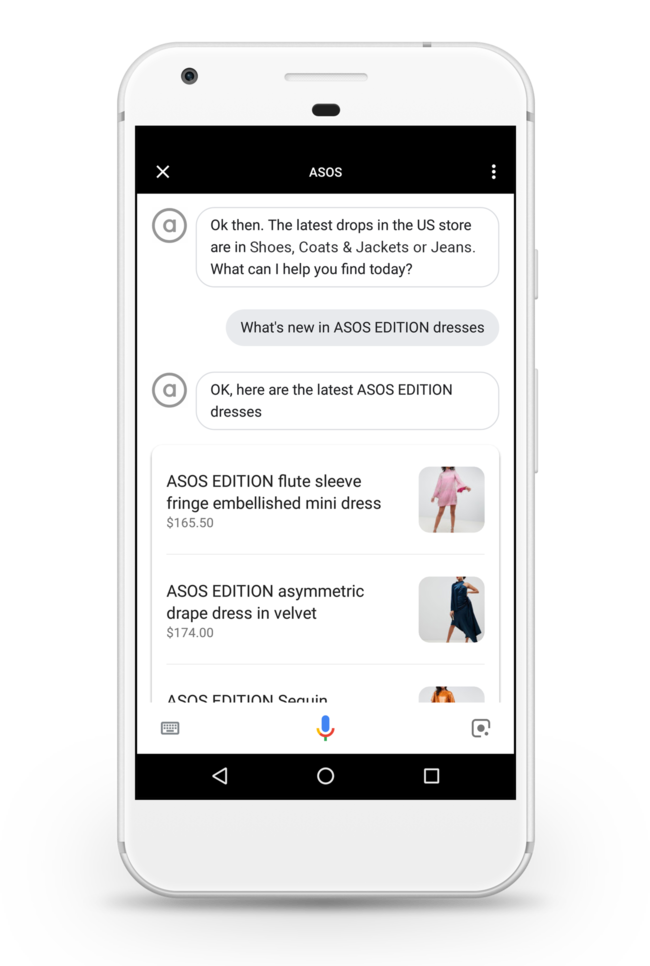
https://ww.fashionnetwork.com/news/Asos-launches-on-Google-Assistant,1023322.html#.W-wKb5NKg6V
Enki main features:
- 'Your Edit'
- recommended brands
- Style Match
- ‘You Might Also Like’
Nike
Nike has launched a partnership with Google Home at the beginning of 2018. The new feature is integrated with others Nike apps like Nike Training Club or Nike Run Club.
What's more users can find display data like pace, distance, elevation, GPS route, heart rate and mile splits. It integrates seamlessly with Google Assistant.
"It’s a different way of thinking about and approaching sport and sports psychology, and ultimately another tool athletes can use to be better,” commented Ryan Flaherty, senior director of performance with Nike Training
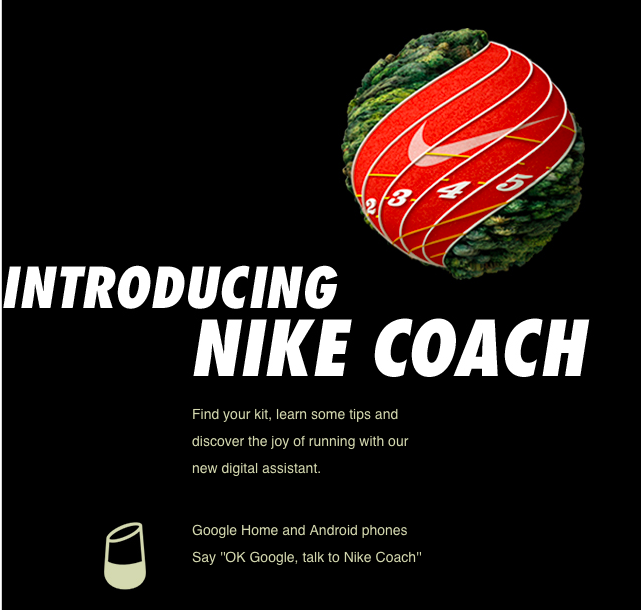
https://www.nike.com/gb/engb/c/nikecoach
Nike Coach features:
- help to find the perfect fit for beginners or experts
- create a program and get some coaching to meet your goals
- learn more about the legends and inside culture of Nike Running
- running advice during training
Estée Lauder
Estée Lauder,a global leader in prestige beauty, started experimenting with voice technologies at the end of 2017. The first initiative was the "Estée Lauder Nighttime Expert" app that offers personalized skincare solutions and beauty techniques. Then, British company has released a series of ads - "Liv at Estée Lauder". This feature was launched on May 2018 and was a second app working through voice-activation across Google Assistant.
When users "Ask Liv" they have an one-on-one conversation to get customized nightly skincare routine, as well as information on a diet that’s proper for their type of skin.
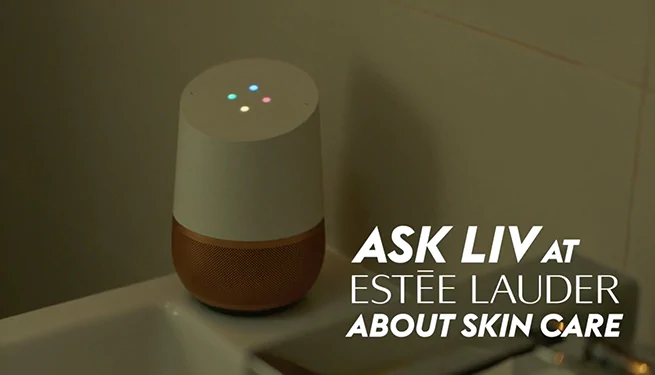
https://m.esteelauder.com/whats-new/google-home-collaboration
"Adding voice experiences will unlock the next level of personalization and help us reach a new generation of consumers," said Tricia Nichols, Vice President, Global Consumer Engagement, Estée Lauder.
Liv at Estée Lauder" features:
- personalized recommendation
- skincare solutions
- beauty techniques
- product recommendation in online store
Uniqlo
Japanese clothing company Uniqlo started using conversational interface earlier this year. Their first app is called "Uniqlo IQ".
It's a mobile assistant that gives customers personalized recommendations by the use of Artificial Intelligence and voice recognition techniques.
Customers can search for items, get recommendations for outfits and voice or text chat with the app for more specific information.
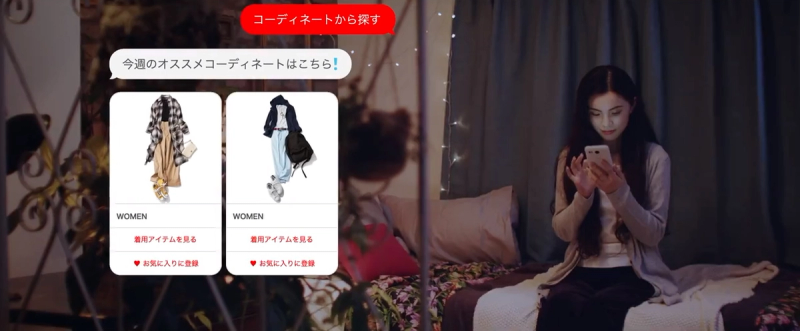
http://withmorningcoffee.com/wp-content/uploads/2018/09/uniqlo-iq.jpg
The app helps:
- to find clothes
- see the product rankings
- use advanced searching services
- find fashion items that are featured in magazines
- recommends products according to each customer’s daily horoscope
Well, matching products based on daily horoscope wouldn't be an 'add value' for everyone but it's a feature that stayed on my mind longer than the others. It means that voice could engage customers not only in the pragmatic way but also through entertainment.
Technology’s Impact On Fashion And Retail
With those great examples, it's important to mention on thing - speech is the most natural way of communicating, therefore companies are innovating to radically improve voice recognition technologies.
This has big implications for those kinds of industries and it could be a chance to discover the Fashion & Beauty in the new way. It means that voice can create competitive areas for the new type of customer experience based on personalization, customer-centered design and increasing brand awareness.
How to get ready?
Voice assistants remember our name, personal details and allow users to customize scenes and skills. It gives customer access to brands through assistants they already use to create more conscious way of shopping and growing brand awareness.
Fashion industry needs innovative leaders who are ready to tap into the opportunities of the Digital Transformation potential.
Finally, the open question remains How will Fashion industry 'design' their own space for developing VUI in 2019 ?
Fashion Tech Blogs to follow:
Explore More Blog Posts

The AI Design Gap: Moving Beyond One-Way Generation
There are plenty of tools capable of generating code from designs or directly from prompts. In theory, this looks like a dream scenario. It drastically shortens the journey from design to frontend development. The handoff is quicker, the design is easier to implement, and everyone involved is happier. Right?

Migrating an ERP-Driven Storefront to Solidus Using a Message-Broker Architecture
Modern e-commerce platforms increasingly rely on modular, API-driven components. ERPs… do not. They are deterministic, slow-moving systems built around the idea that consistency matters more than speed.
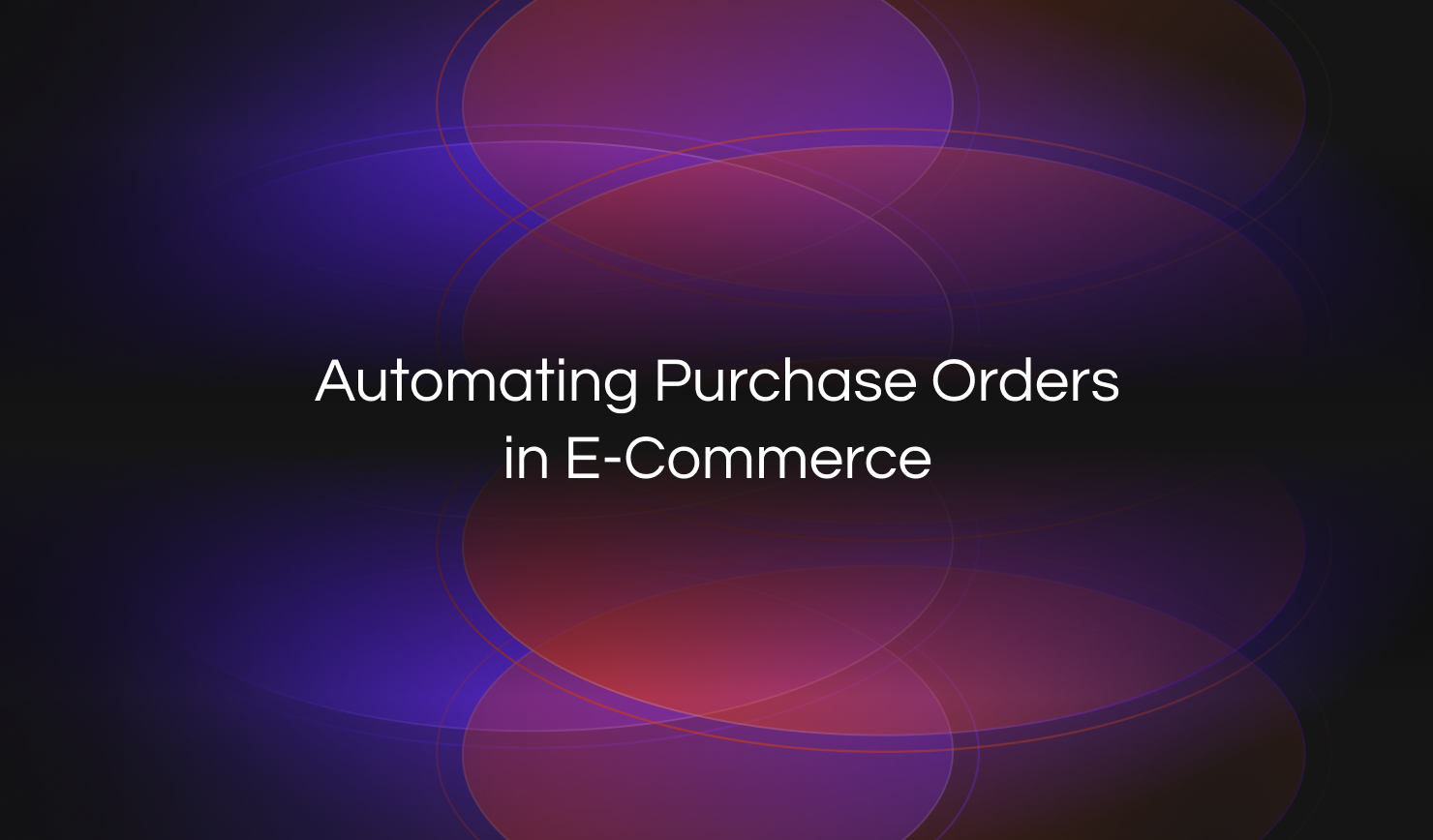
Automating Purchase Orders in E-Commerce: How Agentic AI Handles Unstructured Input
In an era of connected e-commerce, it’s easy to assume that every order flows cleanly through APIs or online checkouts. The reality, however, may be very different, especially in industries where B2B and wholesale operations still rely on unstructured, offline, or legacy input formats.